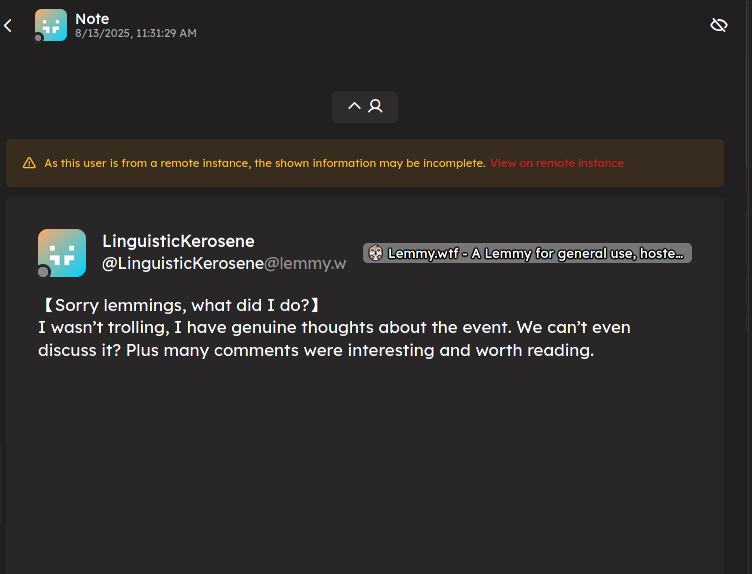

Somehow, this remembers me of Nostr. How much is this different from Nostr? (insofar an user generates their own pair of public and private keys that they use to publish content anywhere within the Nostr ecossystem, at least it’s as far as I remember about Nostr, as it’s been a long while since I don’t use Nostr anymore after it went down the cryptobro road)











@[email protected]
As a Zennial (the microgeneration between Millennials and Gen Z), I already skip meals and ditch my belongings in a frequent basis. It’s far from “getting by”, though: it’s just so I hopefully get to finally retire from my daily, boring job as a “biological vessel operator/manager” sooner 😄